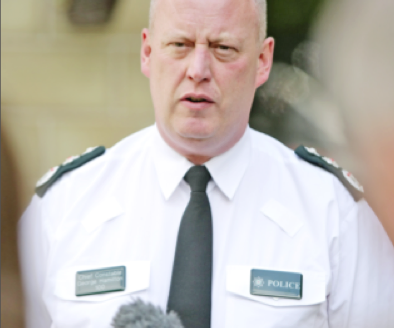IN 2006 the intense focus of many in the policing debates in our community was the lack of progress on legacy matters. It was deeply contentious that a new police service could be established without a wider societal process to deal with the harms of the conflict, especially violations by the RUC, including their involvement in collusion and their involvement in and cover-up of state killings.
Many families took the view that policing was needed in the community and that the structures were there to make human rights-compliant day-to-day policing possible, but did not agree with the moves to engage in policing in the absence of a process to deal with the past.
We all know that the path of a peace process is painful, the question is, what pain is expected from whom?
Victims affected by all actors have been asked to accept painful processes. Those affected by non-state actors were asked to accept the early release of prisoners. For victims of the state this was not relevant because those responsible benefited from impunity.
While the RUC was disbanded their positive reputation in their own community and wider society was secured with a St George’s Cross presented by the queen of England. The costs of changing the RUC to the PSNI ran into tens of millions with severance packages available to those who served in the RUC who did not want to change to PSNI. Those former officers also received pensions. Some of them also came into the PSNI as “civilian staff”.
The thing about all of that was that it was never made clear why the change was necessary. It was alluded to as an issue of “community confidence”, because the RUC had been 90 per cent Protestant. But, of course, that did not explain the need for a human rights-based approach to the PSNI, for multiple platforms of accountability, including a Policing Board, a Police Ombudsman’s office and formal community engagement structures.
Because we had not had an honest accounting for our conflict and impunity reigns supreme, the crimes of the RUC, which include extensive collusion with loyalism, have gone unmentioned and without proper investigation, with the can of dealing with the past being kicked so repeatedly down the road that it has become a sick joke.
When George Hamilton became Chief Constable he made promising and assuring statements about the need for a comprehensive process to deal with the past. However, last year when proposals to do exactly that were published the organisation representing his own rank and file rejected them, because of reputational issues for the RUC.
Last week’s focus on files not disclosed to the Ombudsman have led to a wider discussion about policing structures. However, despite international and domestic law being on their side, the very people who have been harmed yet again by these systemic and deliberate failures are those whose concerns, for the best will in the world, were sidelined in favour of wider political “progress”.
The question is, will those same families, or any other families, ever see their rights being vindicated in a truly independent process? Is it conceivable that they would once again be asked to compromise in favour of wider processes? The anger we all feel this week should be remembered for those days when those questions are asked.
That battered can is kicked again

ASSURANCES: PSNI boss George Hamilton





